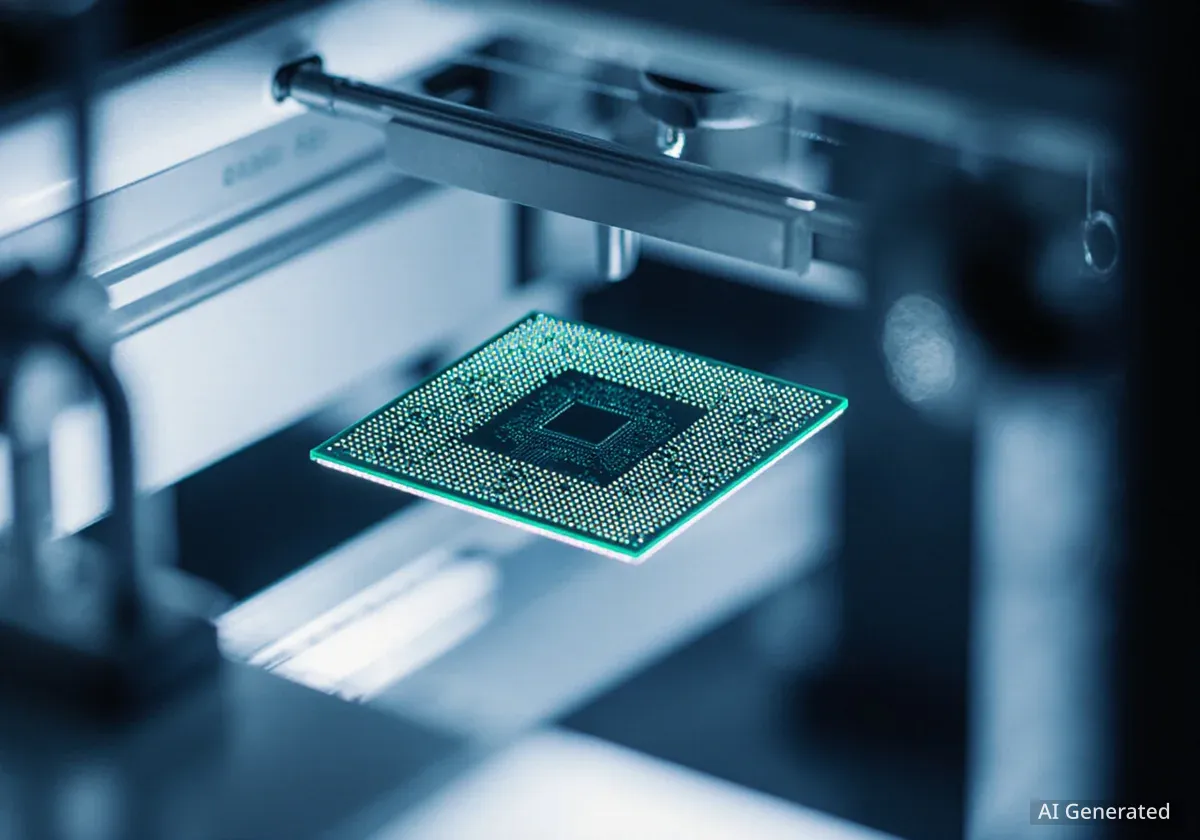Arrcus, a hyperscale networking software company, has announced a significant expansion of its operations in India. The move is driven by increasing demand for advanced networking solutions to support the country's growing artificial intelligence (AI), datacenter, and mobile network infrastructures.
Key Takeaways
- Arrcus is increasing its workforce and appointing new leadership in India to meet rising demand for AI-ready networks.
- The company's ACE-AI networking fabric is central to its strategy, designed to support AI workloads across datacenters and mobile networks.
- New partnerships with Fujitsu, UfiSpace, and Edgecore aim to deliver open, disaggregated networking solutions in the Indian market.
- Vikram Anand has been appointed as Managing Director of India sales to lead go-to-market initiatives.
Strategic Growth in India's Technology Sector
Arrcus is strengthening its presence in India to capitalize on the nation's rapid digital transformation. The company is focusing on providing scalable, AI-ready networking solutions for a range of clients, including datacenter operators, telecommunication providers, and large enterprises.
The expansion includes growing the local workforce, establishing new leadership roles, and forming strategic alliances within the Indian technology ecosystem. This investment positions Arrcus as a key player in a market that is quickly becoming a global hub for AI innovation and consumption.
What is Disaggregated Networking?
Disaggregated networking separates the network hardware (the physical switches) from the software that runs on it. This approach gives customers more flexibility and choice, allowing them to avoid being locked into a single vendor's ecosystem. It enables them to select the best hardware and software for their specific needs, often leading to lower costs and faster innovation.
Shekar Ayyar, CEO of Arrcus, highlighted the strategic importance of the Indian market. He noted that the company's solutions offer a compelling alternative to established providers.
“India is leading in the global AI revolution both as an innovation hub as well as a consumer of AI, with unparalleled market potential,” said Shekar Ayyar. “By expanding our in-country workforce and leadership as well as deepening our local partnerships, Arrcus’ networking solutions are now the best choice for Indian customers as an alternative to incumbent providers like Cisco, Arista, and HPE-Juniper.”
Focus on AI-Ready Infrastructure
At the core of Arrcus's strategy for India is its Arrcus Connected Edge-AI (ACE-AI) networking fabric. This platform is specifically designed to handle the demands of modern AI and machine learning workloads, which require high-speed, low-latency connectivity.
The ACE-AI fabric facilitates seamless communication between various processing units, including GPUs, DPUs, and CPUs, which are essential for AI training and inferencing tasks. This capability is critical for organizations looking to scale their AI operations efficiently.
Benefits of the ACE-AI Fabric
According to Arrcus, its ACE-AI platform enables customers to scale AI processes while reducing latency and overall costs. It also helps optimize power consumption, a crucial factor for large-scale datacenter operations in India's growing digital economy.
The company's focus on AI-ready infrastructure aligns with the Indian government's and private sector's push to adopt AI across various industries. As more organizations deploy AI applications, the need for robust and efficient network backbones will continue to grow.
New Leadership to Drive Indian Market Growth
To support its expansion, Arrcus has made key leadership appointments in India. Vikram Anand has been named the new Managing Director of India sales and business development. Anand brings extensive experience from leadership positions at Dell, VMware, and Persistent Systems.
In his new role, Anand will be responsible for leading Arrcus's go-to-market strategies, building customer relationships, and working with local partners to expand the company's footprint. His appointment signals a strong commitment to establishing a dedicated and experienced team on the ground.
The engineering team in India is led by Ashutosh Sharma, a networking industry veteran with over 25 years of experience at companies like Citrix, Cisco, and Motorola. The growing engineering presence in India will contribute to the development and support of Arrcus's software solutions.
Expanding the Partner Ecosystem
Arrcus is actively building a network of partners in India to promote the adoption of open and disaggregated networking solutions. These collaborations are designed to provide customers with integrated solutions that combine Arrcus's software with hardware from leading manufacturers.
Collaboration with Global Tech Leaders
Key partners have expressed their support for the collaboration with Arrcus in the Indian market.
Masaaki Moribayashi, SEVP of Network & Data Center at Fujitsu Ltd., commented on the shared vision between the two companies.
“Fujitsu and Arrcus share a vision of delivering open, high-performance solutions that accelerate digital transformation. By collaborating in India, we’re enabling customers to build agile, AI-ready infrastructures that deliver efficiency, scalability, and sustainability across industries.”
UfiSpace, a provider of open networking platforms, is also partnering with Arrcus. Vincent Ho, CEO of UfiSpace, emphasized the importance of this partnership for meeting the demands of AI and next-generation mobile networks.
“UfiSpace is committed to empowering operators with open, disaggregated networking platforms that scale seamlessly. Partnering with Arrcus in India strengthens our ability to deliver carrier-class solutions that meet the demands of AI workloads and next-generation mobile networks.”
Edgecore, a provider of open networking hardware, sees the combination of its hardware with Arrcus software as foundational for India's digital future.
“The future of networking in India is disaggregated and open,” said Nanda Ravindran, VP of Product Management & India Operations at Edgecore. “By combining Edgecore's proven open hardware with Arrcus's advanced ArcOS software, we are together delivering an agile, high-performance foundation that is essential for India’s digital future, from 5G expansion to the rise of cloud and AI.”
Industry Engagement and Market Outlook
Arrcus plans to showcase its technology and thought leadership at two major industry events in India in October 2025. These appearances will highlight the company's expertise in AI networking and its commitment to the region.
- At the Global Fintech Fest (GFF25) in Mumbai on October 7, Umesh Bellur, Consulting Architect at Arrcus, will participate in a panel on AI in finance and lead a masterclass on AI in capital markets.
- At the India Mobile Congress (IMC25) in New Delhi on October 9, CEO Shekar Ayyar will deliver a keynote address on AI networking for mobility and digital infrastructure.
Industry analysts have responded positively to Arrcus's expansion. Roy Chua, Founder and Principal at AvidThink, noted the timing of the company's move.
“India represents one of the most exciting opportunities in networking today, and Arrcus is well-positioned to capture it. The company's focus on AI-ready infrastructure and open networking alternatives comes at the right time, as Indian organizations look for modern solutions to support their ambitious digital transformation and AI initiatives.”
Scott Raynovich, Founder and Principal Analyst at Futuriom, also commented on the strategic value of the expansion.
“Arrcus is making a smart move by expanding its presence in India at a time when the country is becoming a major force in AI adoption and digital infrastructure. Their ACE-AI fabric addresses real challenges that enterprises and service providers face as they scale AI workloads, and having local leadership and partnerships will be key to their success in this fast-growing market.”
By investing in local talent, building a strong partner ecosystem, and engaging with the industry, Arrcus is positioning itself to play a significant role in developing the network infrastructure that will power India's next phase of technological growth.





